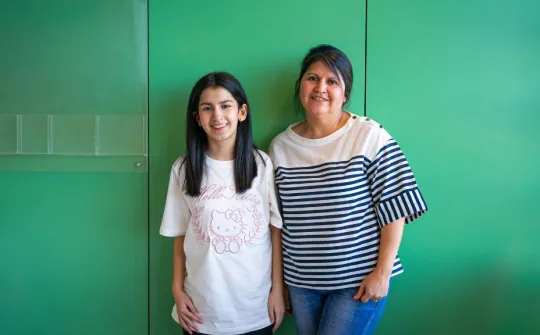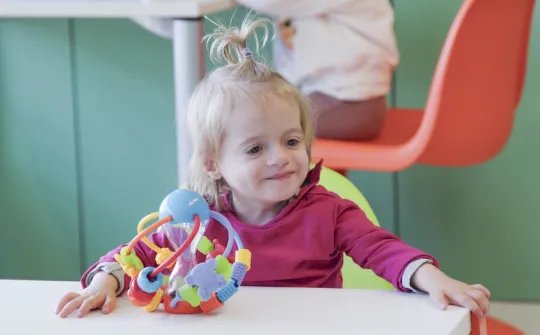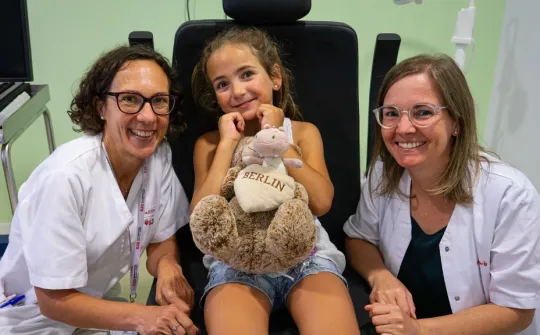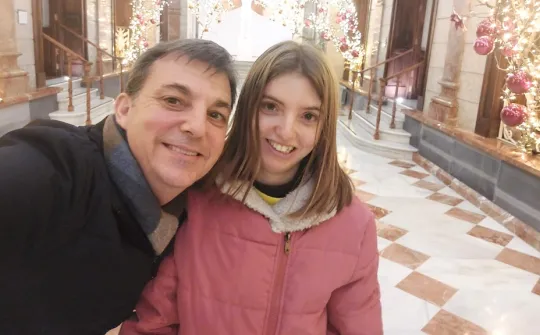“It is important that the residents who come know that in Sant Joan de Déu they work and learn a lot”
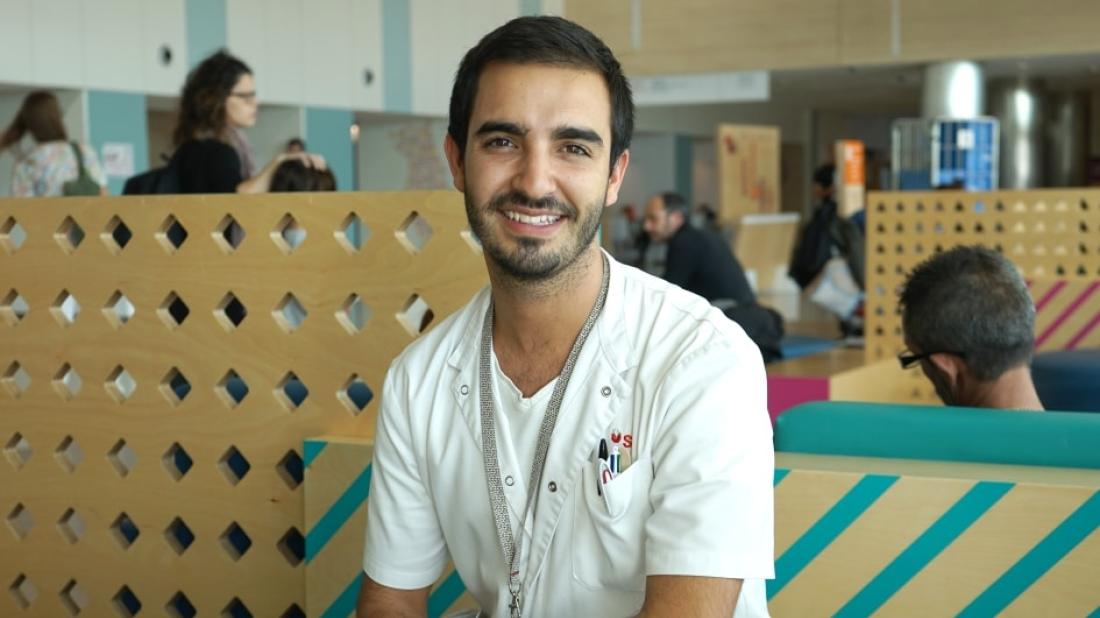
Aitor López, second year MIR, tells us about his experience as a resident at the SJD Barcelona Children's Hospital.
In his Resident Medical Intern second year, Aitor López has already had the opportunity to work in various departments of the SJD Barcelona Children's Hospital and is quite clear where he wants to focus his professional career. Find out about his experience as a resident in our centre.
Now that you are R2, is the residency in SJD Barcelona Children's Hospital what you expected?
Actually yes. Obviously there are many things that you discover throughout the residency, but yes, I expected a beautiful and different stage of my life, a lot of learning, and that's what it is.
Was pediatrics your first option for doing your residency?
I was thinking of doing some specialty that was general, I was considering pediatrics, which was my first option, and if it wasn't possible, also internal or family medicine. I was lucky to be able to choose SJD Barcelona Children's Hospital and here I am.
What assessment do you make of the training model of the Hospital?
I think this is a very good hospital to learn a lot of pediatrics from many different areas, emergency, in-patient, outpatient, intensive care... Sant Joan de Déu has a good itinerary and I am very satisfied. However, I think that the pediatric training itinerary in general is badly planned throughout Spain, because four years is nothing like sufficient time to do everything that pediatrics covers.
Within the itinerary you do training with simulation, with "room scape" techniques and unusual dynamics, what do you think of these training initiatives?
I think that trying new ways of learning, continuing to grow as a MIR from Teaching Hospital is a very positive point. We are very used to studying with books, articles, with direct contact with the tutors and what we learn on a day-to-day basis, and we have to keep doing that, but it is very good that there are new techniques and learning options. I think that it all adds up, and it is not only that they are innovative techniques, but that opting for different forms of learning can be very positive for people with different ways of learning.
What negative aspect, if any, and areas to improve would you mention?
Yes, there are, it would be false if there weren't, right? In this hospital there is a high volume of work, which makes you learn a lot, and also the care burden is high in some specialties. I think that residency should be a stage where you have less patient volume and, after the medical visit, you are able to study each case more carefully. I think it is important that the residents who come know that at SJD Barcelona Children's Hospital you work and learn a lot.
One of the residents' concerns is the shifts, tell us what a regular shift is like.
We have a high volume of shifts, although it depends a lot on the department. We have shifts in Emergency, Hospitalisation, Neonatology, Neonatal and Pediatric ICU... and each department is different. This is a well-known hospital and many people come, and in the Emergency shifts, for example, many patients come, especially in winter. Many children arrive with a mild pathology that should be primary care, but compared to other centres, you see a lot of serious pathologies.
Do you think the supervision of tutors and deputies is adequate?
This is an aspect that I regard very positively. In the Emergency shifts, which I mentioned before, there is always a staff physician who coordinates, organises the entire team and is on hand in the medical office. So you can always go to discuss the cases you attend, especially the first year of residency, and make a decision more collaboratively. It is very positive.
Of the departments where you have rotated so far, has anything especially grabbed your attention?
In the specialties I feel very comfortable and I like them, but I prefer to see the patients globally. I see myself more as a general practitioner than in any specific specialty, within the complexity that can be seen at SJD Barcelona Children's Hospital.
As for research, what experience have you had so far?
From the Hospital we are offered various research projects in different departments, at least once a year. I think we are given a lot of choice and we can choose what we want and even the degree of involvement we want. I think that research is part of the MIR and we have to take advantage of the fact that in the SJD Barcelona Children's Hospital there are powerful research units and not waste this opportunity to develop research skills during our residency.
In SJD Barcelona Children's Hospital the binomial Humanism - Science is important, how do you value the humanistic training you receive? (communication skills, patient experience...)
It is training that is not done in the faculty and is very important. So far I have done the first theoretical part of the course on how to give the first news and we have role-playing sessions focused on how to communicate with families and patients. The specialty of Pediatrics involves more emotional contact with the patient than in other specialties and that makes this more humanistic part come more naturally. I think that our more childish "I" comes out and this connects us with the emotions of patients and families.
